
How does data turn into useful information?
The White House Initiative on Asian American and Pacific Islanders, housed in the Department of Education, and AAPIData.com answered this question at the ELEVATE: AAPI Data Challenge and Convening held on October 7.
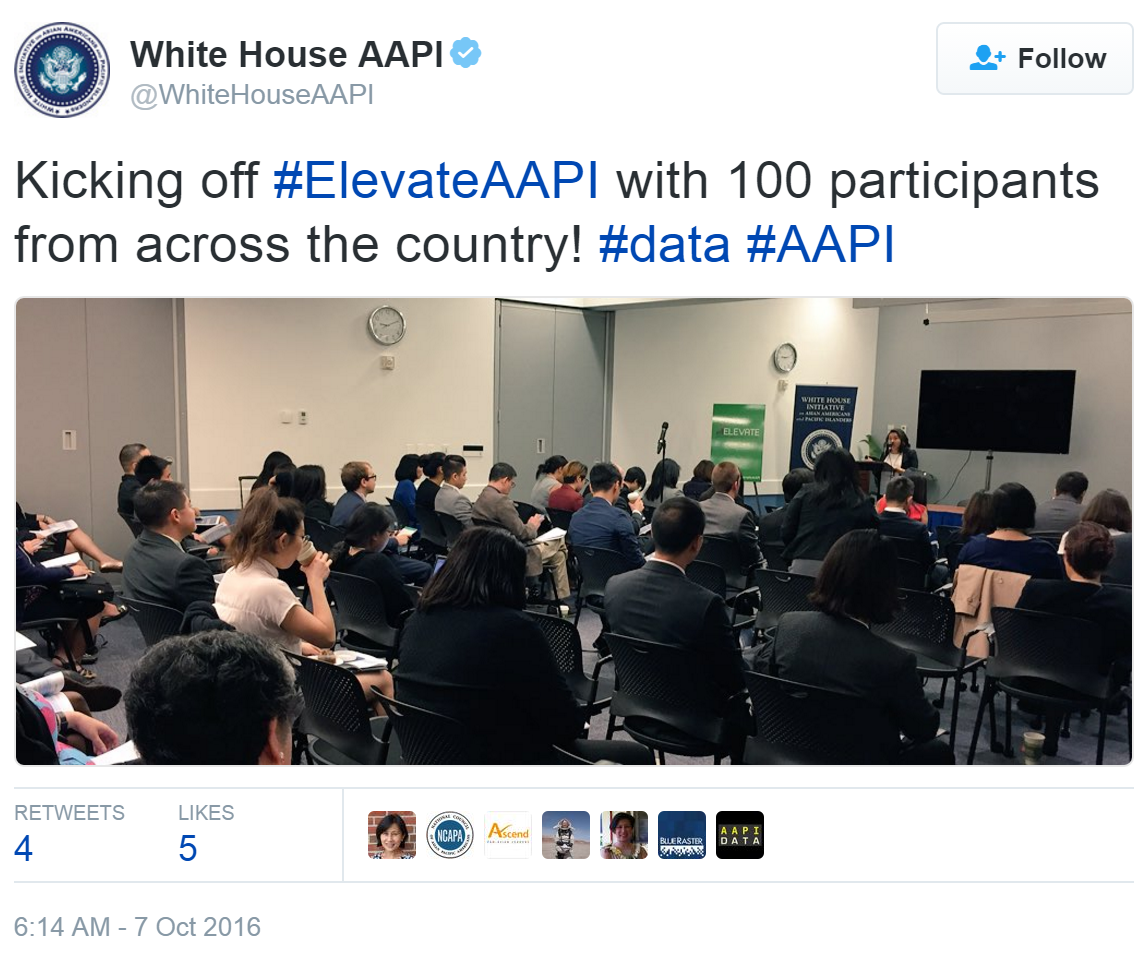
ELEVATE showcased innovative approaches in analyzing, interpreting, and presenting data about the Asian American, Native Hawaiian, and Pacific Islander (AAPI) community received as part of a challenge announced earlier this year that included submissions from high schoolers, graduate students, CEOs, data scientists, the media, and advocacy groups.
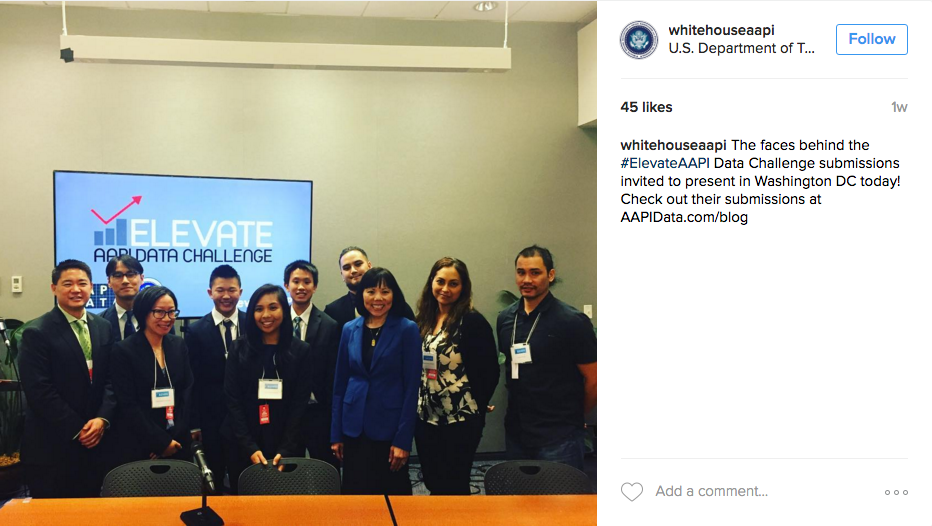
Highlights included:
- Jason Fong, a student at Redondo Union High School, analyzed student population growth at top-tier schools, finding that the numbers of Native Hawaiian and Pacific Islanders at several top-ranking educational institutions had decreased between 2010 and 2015. As a high school student, Jason’s analysis highlights the ability of the younger generation to conduct data analysis and research.
- Representatives from the Department of Justice showcased their Language Map App and its Accessible Alternative. Updated with American Community Survey 2009-2013 data, the Map App can be used by a wide range of users, like mayors, school superintendents, hospital administrators, and librarians, to quickly determine the number of limited English proficient (LEP) individuals in their communities and the languages spoken by LEP individuals. By identifying the concentration of LEP populations at the national, State, judicial district, and county level, these maps allow communities to better identify and respond to language needs and improve targeted outreach efforts. Understanding the languages spoken by AAPI LEPs in a region can also bolster civil rights enforcement. For example, a state agency conducting a state-wide investigation could use these maps as a starting point to determine whether it may need to arrange for Korean or Tagalog interpreters or translated materials to communicate with LEP AAPI complainants or witnesses during site-visits.
- Justin Hong from Hawaii analyzed Hawaii Department of Education (HIDOE) student level data focusing on reading proficiency and graduation rates across several years to track a single cohort of Native Hawaiian students from third grade to high school graduation. The findings of this study suggest that Native Hawaiian students in the HIDOE are more likely to go "off-track" in earlier grades rather than in later grades. Additionally, the likelihood of getting back "on-track" decreases as the students advance through grade levels. Research literature suggests that focusing on early learning and connected programs to ensure early and sustained success is an effective way to achieve successful learner outcomes. This submission is important as data shows Native Hawaiian communities are behind the national average for college graduation.
At the ELEVATE convening, the Initiative’s Executive Director Doua Thor stressed that efforts on data disaggregation and analysis are ongoing and highlighted the recent Federal Register Notice advising the public of the launch of the Office of Management and Budget’s periodic review standards for maintaining, collecting, and presenting Federal data on race and ethnicity. Dr. Karthick Ramakrishnan, Associate Dean of University of California, Riverside and Founder of AAPIData.com, emphasized the importance of data research and collection as well as its significance in impacting change for AAPIs.
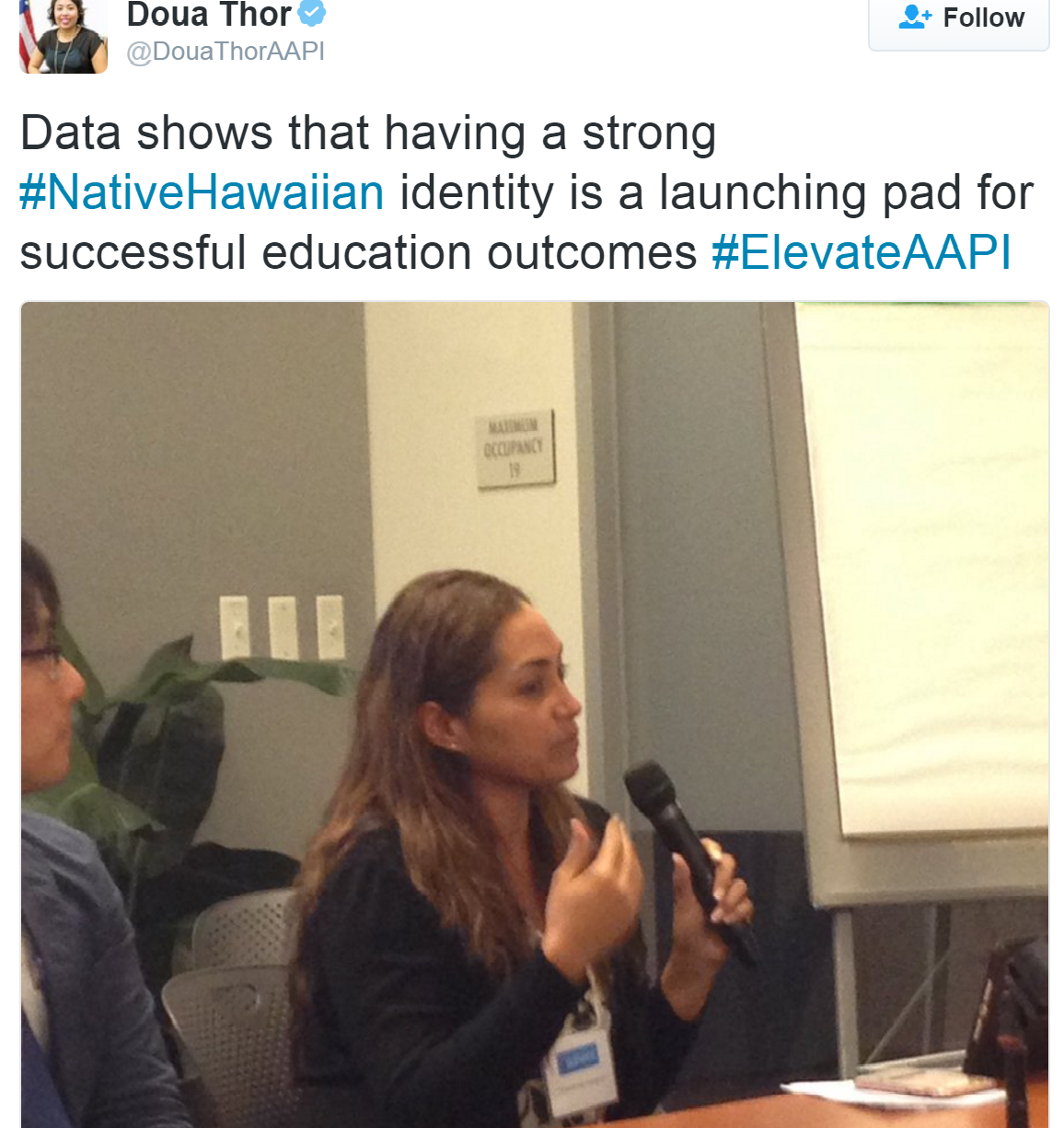
The data convening also featured panels with representatives from academia, vendors, government agencies, think tanks and community organizations.
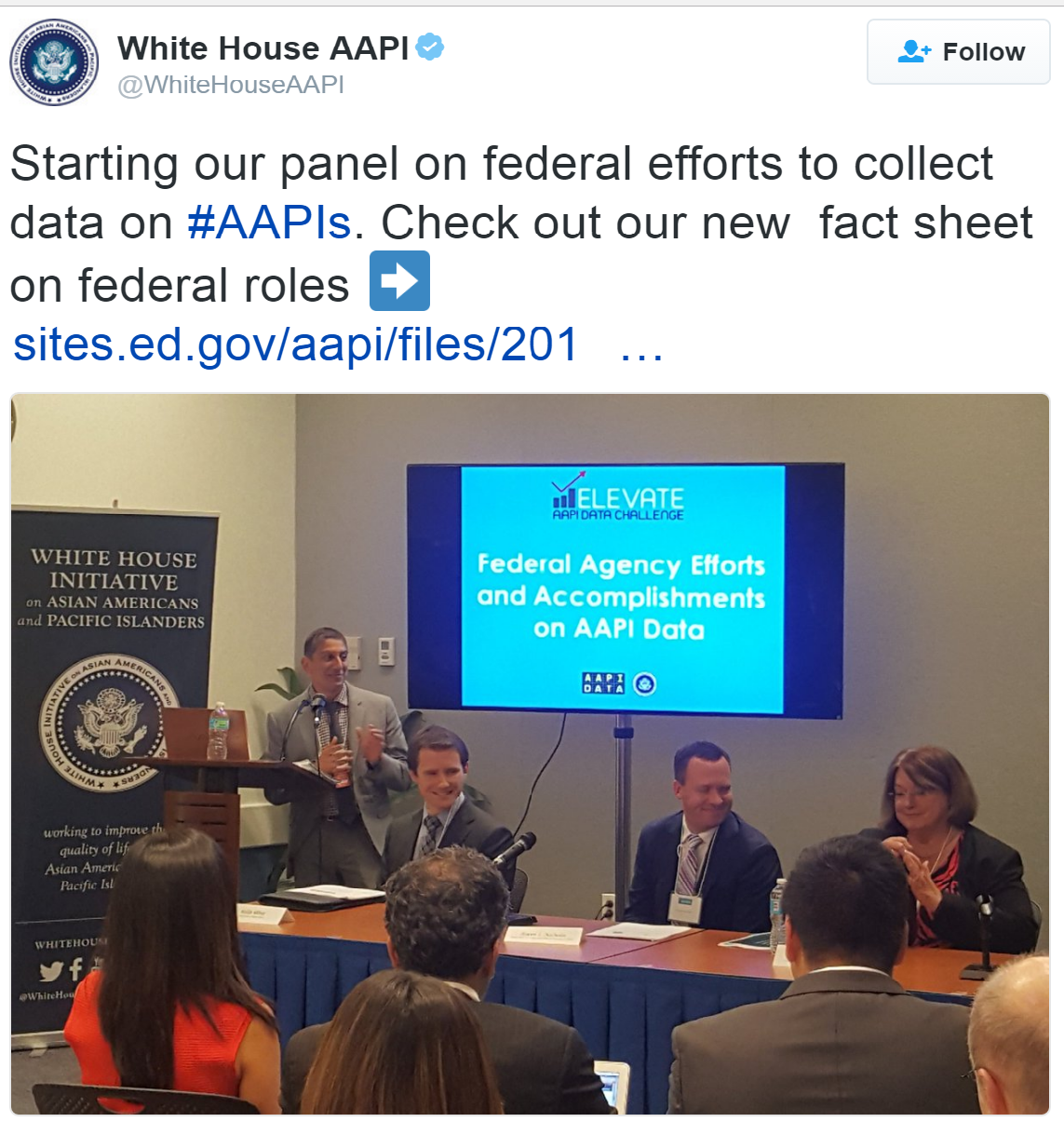
As part of ELEVATE, we highlighted federal accomplishments in improving our understanding of the challenges faced by AAPIs through data. Recent commitments made and strengthened include the Department of Labor’s release of The Economic Status of Asian Americans and Pacific Islanders report, the National Forum on Education Statistics’ Forum Guide to Collecting and Using Disaggregated Data on Racial/Ethnic Subgroups, and the Department of Housing and Urban Development’s release of initial results from the collection of Asian subgroup data in its 2015 American Housing Survey. ELEVATE also unveiled state-by-state infographics on Limited English Proficient (LEP) AAPIs in the United States.
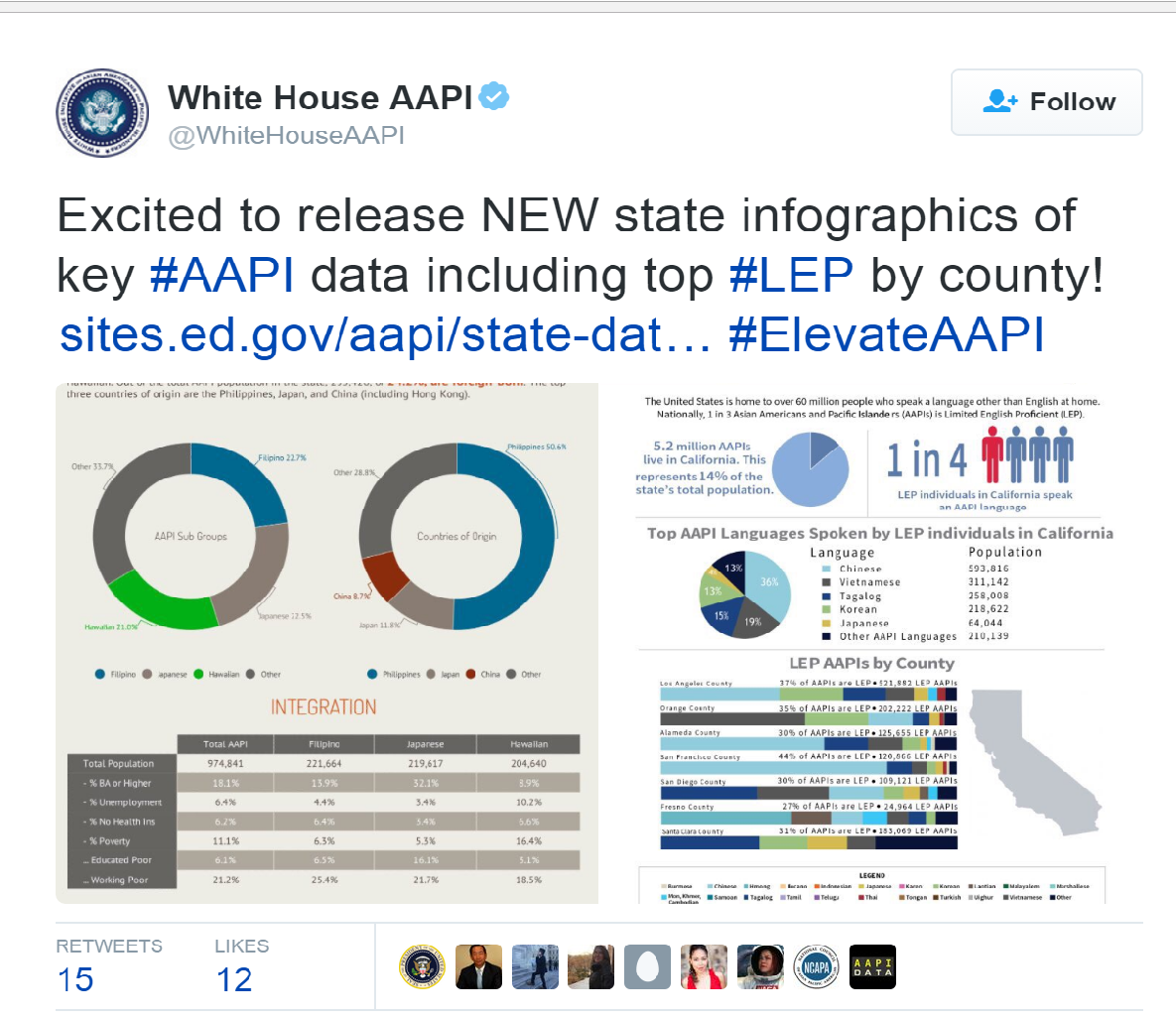
Since 2009, the Initiative has aimed to encourage data collection, dissemination, and disaggregation among federal agencies, state and local partners, researchers, and policy advocates, promoting effective practices to generate more granular data on AAPI communities. Greater access to disaggregated data will support better policies that reflect AAPI community realities and needs. Across the federal government, agencies have developed plans to improve data collection, analysis, and dissemination to help improve the quality of life for all Americans, including AAPIs.

